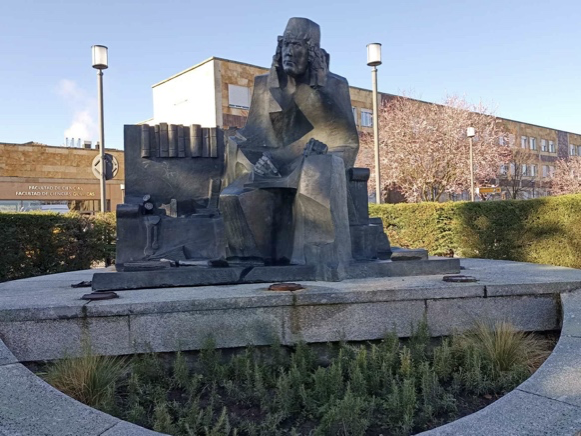Antonio de Nebrija, also known as Antonio de Lebrija or Elio Antonio de Nebrija, was a Spanish Renaissance scholar, humanist, and educator. He was born as Antonio Martínez de Cala y Jarava in Lebrija, Spain, around 1441, and he died in Alcalá de Henares, Spain, on July 5, 1522.
Nebrija is best known for his pioneering work in the field of linguistics and education. His most famous achievement is the publication of the first comprehensive grammar of the Spanish language, titled “Gramática de la lengua castellana” (“Grammar of the Castilian Language”), which was completed in 1492. In Salamanca. This grammar laid the groundwork for the study and standardization of the Spanish language, establishing rules of usage and grammar that helped to codify the language during a period of significant linguistic change. It was quite a surprise for those days. Even Isabel the catholic queen asked Nebrija “Why have you written such a book” The response of Nebrija was eloquent “Your majesty a land goes with its language into the world” He wrote the grammer in the year that Columbus set foot for the first time in the caribbean area.
In addition to his work on the Spanish language, Nebrija was also a distinguished Latin scholar and grammarian. He authored numerous works on Latin grammar and rhetoric, contributing to the study and understanding of classical Latin texts.
Nebrija held various academic positions throughout his life, including professorships at the University of Salamanca and the University of Alcalá. He played a significant role in the intellectual and educational life of Renaissance Spain, promoting humanistic learning and the study of classical languages.
Apart from his linguistic and educational contributions, Nebrija was also involved in various other scholarly pursuits. He wrote commentaries on classical texts, composed poetry, and engaged in philosophical and historical scholarship.
Antonio de Nebrija’s impact on the Spanish language and on education in Spain was profound. His grammar of the Spanish language set the stage for the development of Spanish as a standardized literary and academic language, and his educational reforms helped to modernize Spanish intellectual life during the Renaissance. He is widely regarded as one of the most important figures in the history of Spanish linguistics and education.
Not surprising that now a days Salamanca is famous for speaking the purest Spanish.

